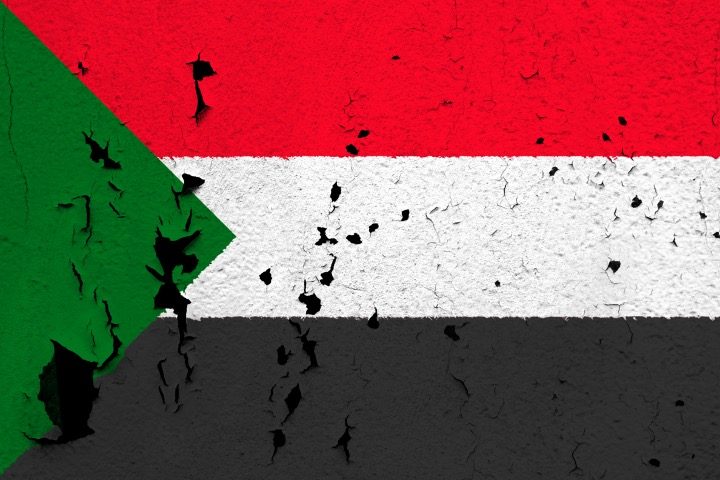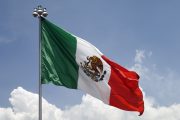
The African community is bracing itself as tensions rise in one of the continent’s most conflict-ridden political hotbeds.
Sudan remains embroiled in a war that has claimed an estimated 15,000 lives since it began in April of last year — a war that itself is only the latest in a series of power struggles that have rocked the country from the time it gained independence from British rule in 1956 (the country has seen 35 attempted military coups in its lifetime, six of which have been successful).
The conflict has produced a massive humanitarian crisis; over 10,000 civilians have been killed, over 7.2 million have been forced to leave their homes, and approximately 1.5 million have had to escape the country.
Moreover, the civil war between rival factions has become a battleground for the interests of foreign powers, who have put their money and resources behind different sides of the conflict.
The two factions in question are the the Sudan Armed Forces (SAF), led by the de facto head of state, Chairman of the Sudan Transitional Sovereign Council Abdel Fattah al-Burhan; and the Rapid Support Forces (RSF), commanded by Mohamed Hamdan Dagalo “Hemedti,” who is the Transitional Sovereign Council’s deputy chairman.
The current war has its origins in the 1980s. Military strongman Omar al-Bashir had held control over Sudan since 1989. Fighting with rebels during his tenure led to the emergence of new armed groups alongside the Sudanese Armed Forces. These militias, formed to fight the rebels, gained influence through their management of the financial activities in the areas under their control — a privilege granted them by the government in exchange for their service.
Today’s RSF originated from one of these groups, an Arab tribal militia in Darfur. Officially recognized in 2013, the RSF reported to the National Intelligence and Security Service and evolved into the largest of such groups. Al-Bashir’s regime strategically used RSF and other militias to maintain a balance within the Sudanese army and thus deter a potential military coup.
But the severe deterioration of Sudan’s financial situation in 2018, sparked by an increasing currency shortage, resulted in a cutback in government expenditures. This, in turn, led to a substantial surge in food prices, instigating a political crisis. The Sudanese population’s yearning for a shift in political leadership led to mass protests that started in December 2018 and went on for over four months.
Consequently, the military, once loyal to the president, effectively aligned with the protesters and executed a coup in April 2019, which ended with al-Bashir’s removal from office and the establishment of a Transitional Military Council, with General Abdel Fattah al-Burhan assuming its leadership. The military leaders averted a civilian revolution by retaining, to a significant extent, the same military figures closely associated with al-Bashir. This move led to stagnation of the transition process, heightening tensions with civilian forces.
Divisions between military and civilian authorities continued to plague Sudan even after the establishment of a supreme civil-military authority in August 2018 under the mediation of Ethiopia, the African Union, and the Intergovernmental Authority on Development (IGAD), as well as an October 2020 cease-fire agreement between transitional authorities and Darfur rebels.
But the contest for power continued. As a piece by RT notes:
A key point of dispute over the specifics of the transition process was the issue of where the RSF fit into the hierarchy of the Sudanese Armed Forces and the duration of the transition process, effectively highlighting the problem of power-sharing between the armed groups. The head of the SAF, al-Burhan, insisted on the need to integrate the RSF into the SAF within two years, emphasizing the need for them to be fully accountable to the leadership of the SAF. Hemedti, on the other hand, favored bringing the RSF directly under the control of the Sovereign Council (civilian forces) and extending the transition process to a 10-year period. The dispute between the generals, along with fears of a transition to civilian rule, was also based on financial considerations.
Hemedti, the head of the RSF and one of the most influential politicians in the country, has concentrated up to 100,000 trained soldiers under his command, who have undertaken several military campaigns both inside Sudan and in Yemen and Libya, where they were funded by the UAE and Saudi Arabia. In addition, the RSF hold an important source of foreign exchange — gold mines in Darfur — control Sudan’s border to the west with Chad and Libya, and participate in regional smuggling.
SAF, meanwhile, also wields enormous economic influence through its control of several large companies and resources that account for 80 percent of the Sudanese economy.
All of these tensions came to a head last spring with the outbreak of armed conflict. In this conflict, international actors have played an important role. Egypt is closely aligned with SAF, lending it the use of its pilots. Meanwhile, the United Arab Emirates has close economic ties with RSF, supplying it with both money and arms shipments by way of Chad and Libya.
Ultimately, the civil war within Sudan, while given little media attention compared to other simultaneous wars across the globe, could have consequences that reverberate throughout the region and the world.



